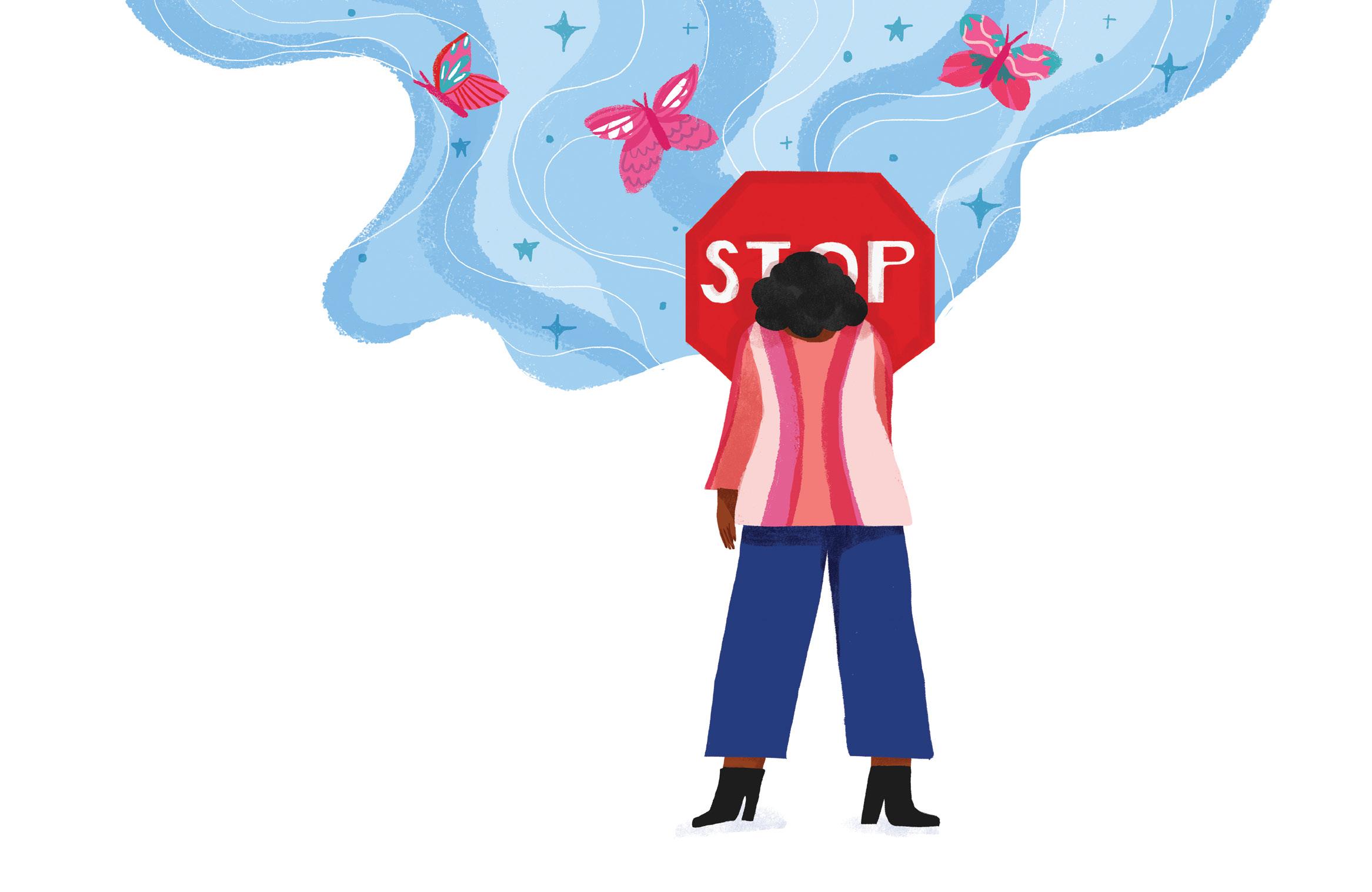
3 minute read
Research News
by B. GRACE BULLOCK
Mindfulness At School Improves Learning Skills
Advertisement
New research from Australia shows classroombased mindfulness lessons for young children can aid the development of executive function—a set of skills that are key to academic and social thriving—while also building stress resilience. Of 91 kindergarten- to second-graders who participated in a classroombased program, two-thirds were offered mindfulness instruction during the first part of the study.
The remaining third, serving as a control group, received lessons when the study was done. At set times each day, teachers (who had minimal prior experience in teaching mindfulness) had children listen to the sound of a gong. They could also add mindfulnessbased activities like reading, making crafts, or taking mindful moments. Students also did breathing and body-scan exercises. At the end of the semester, students in the mindfulness classrooms were better able to pay attention, regulate their behavior, shift between tasks, plan, organize, and monitor their responses than the control group; teachers also reported the former showed greater attention and concentration skills and more prosocial behavior.

Daily Body Scan Reduces Stress
A daily body scan may reduce stress’s impact on mind and body, a new study finds. German researchers assigned 47 young adults to either a body scan group or an audiobook control group. Body scan group members practiced a Mindfulness-Based Stress Reduction–based body scan. Book group members listened to an audiobook of a novel. Both groups were asked to listen to their recordings for 20 minutes per day for eight weeks. Before and after, researchers took strands of participants’ hair (to measure cortisol and DHEA, which are biomarkers of stress), and had them complete a questionnaire about their stress level. Cortisol and DHEA val-
Interestingly, people in both groups reported less psychological stress at study’s end.
Brief Mindfulness Intervention May Improve Emotion Processing
A new study finds just one week of meditation may loosen the grip of negative emotions.

ues found in hair reflect long-term stress patterns. After eight weeks, cortisol levels declined in the body scan group, but went up in the audiobook group. The body scan group also experienced a greater decrease than the audiobook group in their cortisol to DHEA ratio, meaning they showed less biological stress than did the controls.
Researchers in China assigned 46 college volunteers to either a mindfulness meditation intervention group or an emotion regulation education group. Meditation instruction was based on core concepts of mindfulness and the breath, and delivered via a short lecture on mindfulness theory, followed by seven days of 15-minute, audio-guided group meditation sessions. The emotion-regulation education group attended a lecture on recognizing and regulating their emotions, then practiced alone for 15 minutes per day for the next seven days. Before and after, both groups filled out questionnaires about their depression and anxiety symptoms and underwent computerized tests that assessed their emotional intensity, emotional memory, and attention. After training, depression and anxiety scores didn’t change significantly for either group, but those in the meditation group had better emotional memory and were less likely to pay attention to negative emotion. They also reported feeling less positive and negative emotional intensity than the controls. More research is needed to see whether brief interventions can reliably boost people’s moods.
Dr. Sally Safa had her own periodontist clinic and was raising a family when burnout struck.
“I woke up one morning and I could not go to work,” she says. “I didn’t know what was wrong with me. I was trying to push through it. I was vomiting. I couldn’t get out of the house.”
Safa was having a panic attack. The daughter of hardworking immigrants, she had always pushed herself to achieve—so when a therapist recommended mindfulness, she threw herself into it completely, despite having doubts. A course at the Omega Center led her to discover MindfulnessBased Stress Reduction, and everything changed.

“This personal journey was happening, and I started to change as a [medical] practitioner,” she reflects.
One of her biggest breakthroughs was realizing that her own anxiety was stirred by seeing anxious patients, and theirs was stirred by hers. She created a more comfortable environment in her clinic, such as practicing mindful listening and offering meditation sessions to her staff.
“With my patients on a day to day, I check my anxiety, I check their anxiety,” she says. “This is a human being. They are in pain. They deserve me to mindfully listen to them.”
Today, Safa works with groups including the Canadian Dental Association to teach current and future dentists about the value of mindfulness and managing stress. Telling her story to others made her realize she’s not the only dentist who has struggled.
“I realized by talking to people that so many people have various levels of anxiety,” she says, acknowledging that many dentists struggle with drug addiction, depression, and higher risk of suicide. “We have to help ourselves manage day to day in this quite stressful profession.”



#MY MENTAL HEALTH IN 3 WORDS
In early December, many Twitter users decided to break down the silence around mental health by sharing their experiences with mental illness and recovery using the hashtag #mymentalhealthin3words. The answers ranged from lighthearted to profound, with each providing an honest look at the nuances of mental health.







